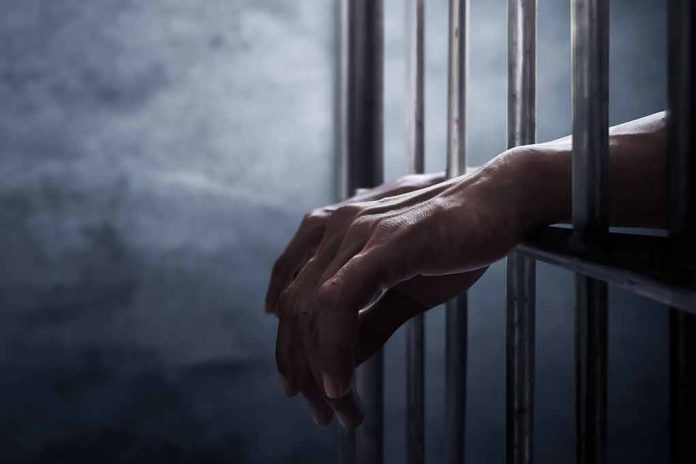
El Salvador’s offer to house U.S. criminals in its prisons sparks questions about legality and human rights concerns.
Key Takeaways
- El Salvador proposed housing U.S. criminals, including citizens, in its prisons.
- Secretary of State Marco Rubio praised the offer as “very generous.”
- Legal challenges exist due to U.S. Constitutional restrictions.
- Human rights concerns arise over El Salvador’s prison conditions.
- The agreement would include a fee paid to El Salvador by the U.S. government.
Unprecedented Prisoner Transfer Proposal
In a move that has caught the attention of the international community, El Salvador has extended an offer to the United States to house American criminals in its prison system. Secretary of State Marco Rubio announced the proposal following discussions with El Salvador’s President Nayib Bukele, describing it as an “act of extraordinary friendship.”
The agreement, if implemented, would allow the U.S. to transfer both foreign nationals who have committed crimes in America and jailed American citizens to El Salvador’s correctional facilities. This unprecedented arrangement aims to address overcrowding in U.S. prisons while potentially providing financial support to El Salvador’s penal system.
Legal and Constitutional Hurdles
Despite the enthusiasm from some quarters, the proposal faces significant legal challenges. The U.S. Constitution, particularly the Eighth Amendment’s prohibition on “cruel and unusual punishments,” may present a formidable obstacle to implementing such a plan. Rubio himself acknowledged these potential hurdles, stating, “There are obviously legalities involved. We have a constitution.”
The proposal’s scope extends beyond just housing criminals. El Salvador has agreed to accept deported Salvadorans and members of international criminal gangs like MS-13, regardless of their nationality. In exchange, the U.S. government would pay a fee to El Salvador, potentially creating a new revenue stream for the Central American nation.
"Generous" El Salvador offer to house American criminals faces "legalities:" Marco Rubio https://t.co/8Siscpx26x
— The Hill (@thehill) February 5, 2025
Human Rights Concerns
While proponents believe there will be benefits the agreement, human rights advocates have raised concerns. El Salvador’s prison system, under President Bukele’s administration, has been criticized for its harsh conditions. The U.S. State Department has described these facilities as “harsh and dangerous,” prompting questions about the ethical implications of transferring prisoners to such an environment.
Critics argue that outsourcing incarceration to a country with a history of prison abuses could amount to a violation of prisoners’ rights. Concerns intensify as images and reports of El Salvador’s “mega-prison” circulate, showcasing the strict measures implemented under Bukele’s crackdown on gang violence.
Moving Forward
President Donald Trump has said that the administration is looking into the legality of the proposal. The proposal has ignited concerns touching on issues of sovereignty, human rights, and international cooperation in criminal justice. As discussions progress, the international community will be watching closely to see how this unprecedented proposal unfolds and what it might mean for the future of cross-border incarceration agreements.
Sources
- Trump says he’d deport US citizens convicted of crimes ‘in a heartbeat’ if legal
- ‘Generous’ El Salvador offer to house American criminals faces ‘legalities:’ Rubio
- Trump administration to study legality of El Salvador offer to host U.S. prisoners













